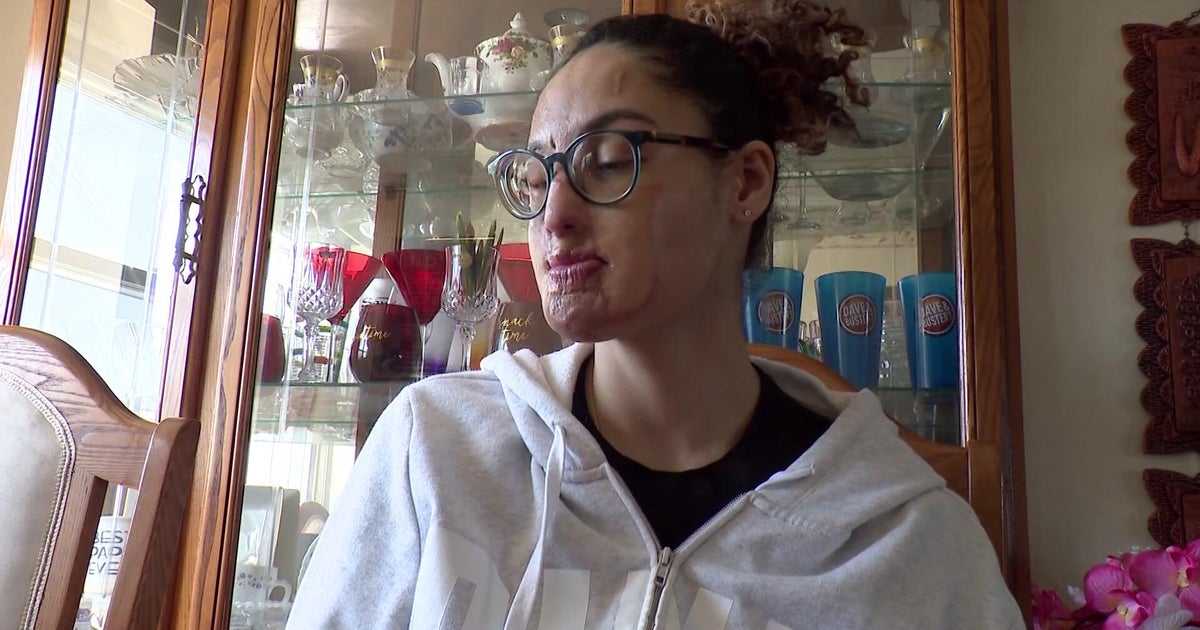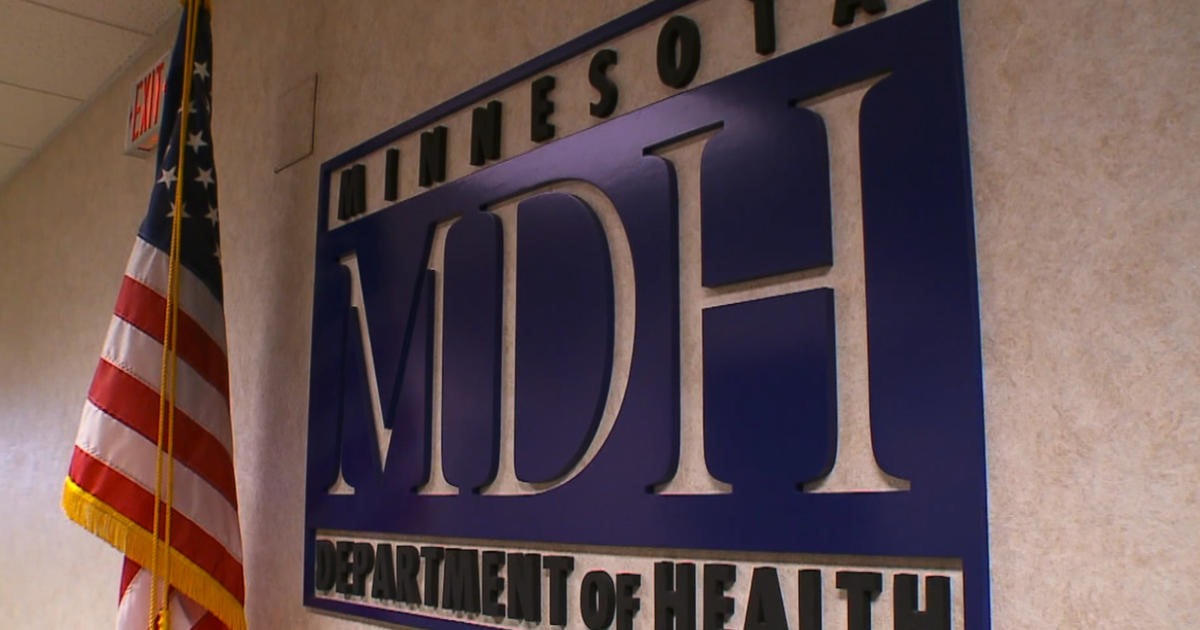Transcript: Dr. Scott Gottlieb on "Face the Nation," July 25, 2021
The following is a transcript of an interview with former FDA commissioner Dr. Scott Gottlieb that aired on Sunday, July 25, 2021, on "Face the Nation."
JOHN DICKERSON: Now we go to former FDA commissioner Dr. Scott Gottlieb, who is also on the board of Pfizer. He joins us from Las Vegas, Nevada. Good morning, Dr. Gottlieb.
DOCTOR SCOTT GOTTLIEB: Good morning.
JOHN DICKERSON: So let's start. People are hearing about increasing cases, maybe wearing masks, even if you're vaccinated. There's also talk of breakthroughs if you're vaccinated. You always want to start with the risk decisions that people have to make for themselves. So how should Americans think about what's happening right now and how they should make their own risk judgments based on what you know?
DR. GOTTLIEB: Well, the first thing I would urge Americans to do is to get vaccinated. We know the vaccines are highly effective, even against this Delta variant. There was data in the New England Journal of Medicine out this week showing that the vaccines are 88% effective against symptomatic disease. And certainly anyone who goes out and gets vaccinated right now is going to have a vaccine that protects them through the fall in the winter. So they're going to have broad, durable protection from that vaccine, whether you're vaccinated or unvaccinated. If you want to add an additional measure of protection, if you're in a high prevalence environment where there's a lot of infection a mask can still be helpful against this new variant. The physical characteristics of this virus has- has not changed. The reason it's more transmissible is that there's simply more of it. When people get infected, they get more virus, higher viral levels and they exude more virus, so they're more contagious. But the characteristics of the virus haven't changed as far as we know. So it's not more airborne. It's not more likely to be permeable through a mask. So a mask can still be helpful. I think, though, if you're going to consider wearing a mask, the quality of the masks does matter. So if you can get your hands on a KN95 mask or an N95 mask, that's going to afford you a lot more protection. Initially at the outset of this epidemic, we were encouraging people not to use N95 masks because there weren't enough of those masks for medical workers. Now there's plenty of masks. There's plenty of N95 masks in the system. The Biden administration has done a good job ramping up supply. There's also KN95 masks available. So I would encourage people to look at the quality of the mask and try to get their hands on a better quality of mask. The final piece of advice I would give and the question I get a lot is if you are vaccinated, can you still spread the virus? We had pretty good data with the old strains of the coronavirus that if you were vaccinated, you were far less likely to transmit the virus. That's probably still true. You're probably less likely to transmit the virus. But if you are vaccinated and you do- you do develop an asymptomatic or mildly symptomatic infection, there probably is a higher chance that you can transmit this Delta virus than some of the old strains because there's just more of this virus. The viral levels are higher earlier in the course of the infection. So if you're around vulnerable people, if you're taking care of a newborn or an elderly patient and you're vaccinated, you don't feel well, you should probably get yourself checked out, not assume that you're impervious to any kind of infection, even if you're vaccinated.
JOHN DICKERSON: So when you use the word probably- it seems like the moment we're in it- do we have a handle on this Delta variant in terms of how much there is? And some of the questions you just- you just raised is a little bit more fuzzy than- than we might hope.
DR. GOTTLIEB: Yeah, look, what we know is that the virus levels that you develop early in the course of the infection are significantly higher with this Delta virus than with the old strains. And that's why people are more contagious. That's why this is spreading more rapidly. But the other thing we know about this is that those virus levels go up very quickly. And that's why we think that the virus is more- it's easier for this virus to overwhelm the immune system. So, for example, if you have a vaccine that you got seven or eight months ago and your antibody levels are declining, if you get this new Delta variant, it's easier for this Delta variant to overwhelm low antibody levels. And that's why we- we're considering whether or not some people might need booster- boosters to increase their antibody levels. So we know that you have more virus onboard earlier in the course of the infection. We know that you're likely to shed more virus that makes you more contagious. It also makes it more likely that you're going to develop an infection from this new variant.
JOHN DICKERSON: There was a study done by the COVID-19 Research Consortium that said basically we may be in this period we're in now all the way through into mid-October. The CDC then came out with numbers and said over the next three weeks, there may be between 90,000 and 800,000 new cases. That seems like a very big range, between 90 and 800 thousand. What's your sense of how long we're going to be in this period we're in?
DR. GOTTLIEB: Yeah, people are having a hard time modeling this- this outbreak. And the CDC relies on outside modelers to do their own estimates and they put out the models that they got from that consensus group. But you're right, if you look at heading into the week of August 14th, the models that the CDC puts- puts out or put out estimates that there's going to be anywhere from 10,000 infections a day over the course of that week to 100,000 infections a day, which really is an indication that they don't have a good sense of where we're heading with this outbreak. I believe that there is more virus than we're picking up right now. There's probably a lot of people with mild to subclinical infection since more of the infection is happening in a younger population that's less likely to become very symptomatic. We're not doing a lot of testing. More of the testing that we are doing is antigen- antigen tests that are being done at home and not getting reported. So I think we're much further into this epidemic than we're picking up and hopefully further through this epidemic. If you look at the U.K. right now, and we're probably about three weeks, maybe four weeks behind the U.K., perhaps a little less than that. If you look at the U.K., they do in the last seven days appear to be turning a corner. You're starting to see a downward trajectory on the cases. Now, it's unclear whether that's going to be sustained. They just lifted a lot of the mitigation that they had in place. But if the UK is any guide, we are perhaps further into this epidemic and hopefully going to turn a corner in the next two or maybe three weeks
JOHN DICKERSON: In- in hindsight, would it have been better if the CDC tracked those breakthrough cases on vaccines so that we'd have a clearer picture of those questions you raised, which is how possible is it for a breakthrough and how symptomatic or how much you might be able to spread, even if you've got a very mild case once you've been vaccinated?
DR.GOTTLIEB: I think it's absolutely the case. Right now, the CDC is only tracking breakthrough infections when people get hospitalized. And so we know the vaccines are very effective at preventing hospitalization in Florida, which is really the epicenter of the epidemic, right now. Ninety-five percent of the people who are hospitalized are people who are not fully vaccinated. But we need to understand whether or not vaccinated people are developing subclinical and mild infections and whether or not they can spread the virus, because that's going to inform the kinds of decisions that they make. And we're just simply not tracking that. So it depended upon data from other countries like Israel for trying to answer those important questions. It's a question I get a lot from vaccinating individuals is whether or not they can spread the infection. Again, we know that they were far less likely to spread the infection with the other variants. We don't know a lot about this Delta. This is a question that can be answered, and CDC should be looking at this
JOHN DICKERSON: Finally, in the last 40 seconds we have here- those who have kids going back to school under 12 years old, the vaccine is not available. President Biden said he hoped it would be soon. What's your sense of when that might be available for those under 12?
DR. GOTTLIEB: Right. Well, Pfizer, the company I'm going to board of, is one of the companies developing this vaccine. It's a 10-microgram vaccine. So it's going to be a lower dose in children under the age of 12 than the 30-microgram vaccine that we have for people who are 12 and above that we're also using in adults. The clinical data from this trial looking at this 10-microgram vaccine for children ages 5 through 11 should be available in September. The FDA recently indicated that it's unlikely to be available before midwinter because I believe that the FDA is likely to require at least six months of follow-up, 4 to 6 months of follow-up of the children in that clinical trial. So that puts it more in the winter timeframe.
JOHN DICKERSON: All right, Dr. Scott Gottlieb, thanks as always. And we'll be back. Stay with us.



